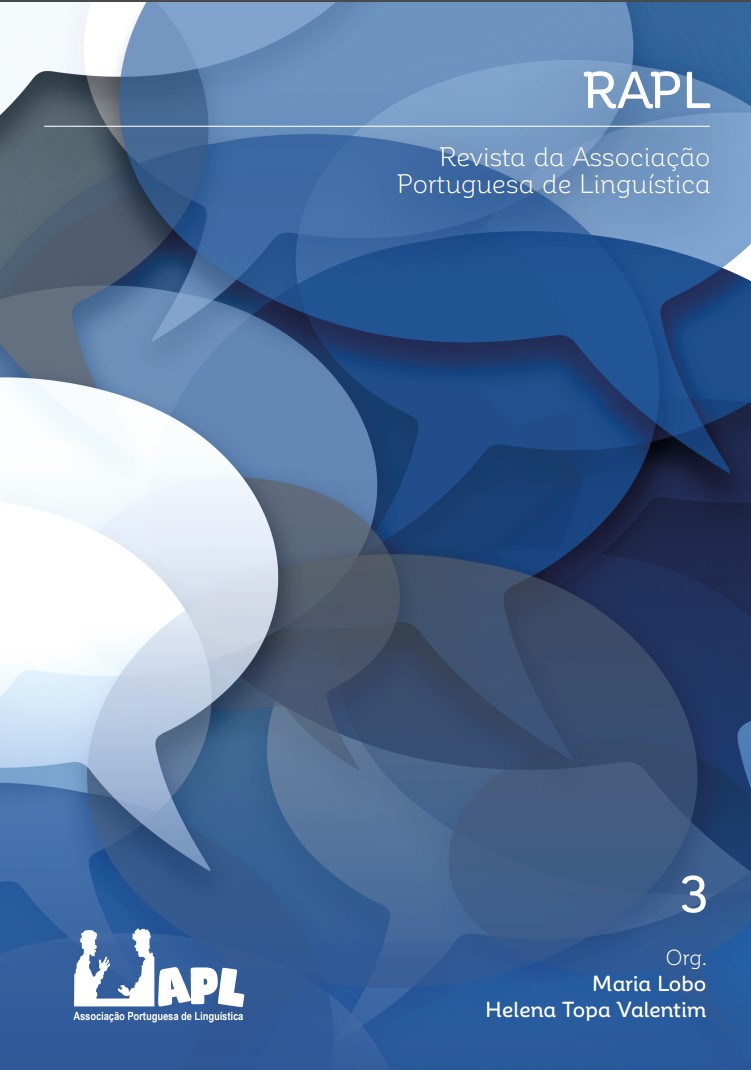Condicional e 'ir' no Imperfeito + Infinitivo: questões de temporalidade e de modalidade
DOI:
https://doi.org/10.26334/2183-9077/rapln3ano2017a6Palavras-chave:
Semântica, relações temporais, Condicional, ir Infinitivo, modalidadeResumo
In European Portuguese, both the Condicional (approximately corresponding to the English structure would + Infinitive) and the construction ir (‘go’) in the Imperfect + Infinitive express posteriority with respect to a given past interval. In this paper, I show that, in spite of their seemingly similar behaviour, these two forms diverge in a number of significant aspects. In particular, and taking into account the analysis of contexts such as if-clauses and some subordinate complement clauses introduced by factive and intensional verbs, I will argue that, while the Condicional is mainly used to provide modal information, even losing its basic temporal value, the structure ir (‘go’) in the Imperfect + Infinitive always induces a temporal relation of futurity in a past domain, irrespective of the possible modal meanings accompanying it.
Downloads
Downloads
Publicado
Como Citar
Edição
Secção
Licença
Direitos de Autor (c) 2017 Luís Filipe Cunha

Este trabalho encontra-se publicado com a Licença Internacional Creative Commons Atribuição-NãoComercial-CompartilhaIgual 4.0.
Os autores mantêm os direitos autorais e concedem à revista o direito de primeira publicação. Os artigos estão simultaneamente licenciados sob a Creative Commons Attribution License que permite a partilha do trabalho com reconhecimento da sua autoria e da publicação inicial nesta revista.
Os autores têm autorização para disponibilizar a versão do texto publicada na RAPL em repositórios institucionais ou outras plataformas de distribuição de trabalhos académicos (p.ex. ResearchGate).





